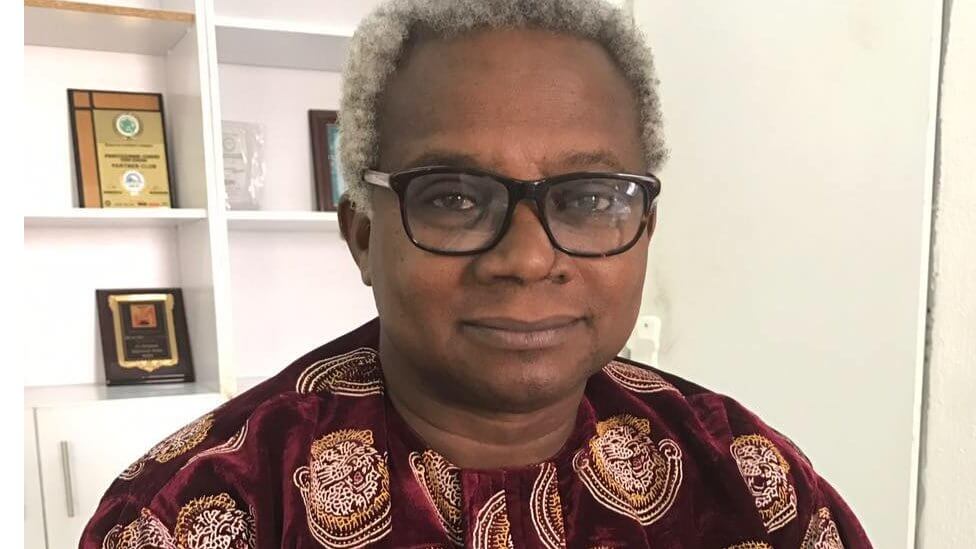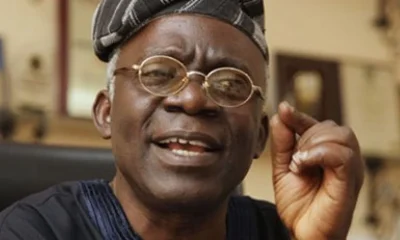NEWS
Dangote Refinery: Okechukwu Accuses Cabals of Sabotage

In a pointed and highly critical statement, a foundation member of the All Progressives Congress (APC), Osita Okechukwu, has publicly accused a powerful “cabal” within Nigeria’s oil sector of deliberately sabotaging the Dangote Refinery. Speaking to journalists in Abuja, Okechukwu’s comments illuminate a high-stakes battle brewing between the nation’s new private refining giant and entrenched interests within the oil industry, including powerful unions and state-owned enterprises. The former Director-General of the Voice of Nigeria (VON) submitted that the alleged “conspiracy” against the Dangote project is a calculated attempt to maintain a monopolistic and corrupt fuel importation regime, which has long been a source of immense profit for a few at the expense of millions of Nigerians.
The core of Okechukwu’s accusation stems from the ongoing face-off between the Dangote Refinery and a host of powerful industry players, including the Nigerian National Petroleum Company Limited (NNPCL), the Nigeria Union of Petroleum and Natural Gas Workers (NUPENG), and the Petroleum and Natural Gas Senior Staff Association of Nigeria (PENGASSAN). These organizations, along with other informal actors, have expressed concerns about the refinery’s operations, with some critics raising issues of pricing and potential monopoly. However, Okechukwu dismissed these concerns as a smokescreen, arguing that the real motive is to protect a lucrative but inefficient fuel importation system. The “oil cabals,” a term long used in Nigeria to describe a clique of powerful individuals and companies controlling the oil sector for their benefit, see the Dangote Refinery as a direct threat to their business model, which has thrived on the importation of refined petroleum products.
Okechukwu’s most searing criticism was reserved for the NNPCL, the very institution tasked with driving Nigeria’s energy independence. He questioned the state oil company’s moral standing to oppose a local refining project after its own four state-owned refineries—in Kaduna, Warri, and Port Harcourt—have remained moribund for decades despite billions of dollars spent on their “turnaround maintenance.” This history of woeful mismanagement and colossal financial waste has been a source of national embarrassment and public frustration. Furthermore, Okechukwu lamented the NNPCL’s decision to pass on a golden opportunity to acquire a 20% stake in the Dangote Refinery, a move that would have given the government a direct say in a project of national importance. In his view, the NNPCL’s current stance of simulating a crisis is not only paradoxical but a form of economic sabotage that goes against the country’s best interests.
The APC chieftain framed the entire conflict as a battle for the soul of Nigeria’s energy future. He argued that the only valid option for competition to the Dangote Refinery is for the NNPCL to finally revive its dilapidated refineries. As it stands, without functional state refineries, the country is still dependent on imported refined products, making it a market without competition. The Dangote project, being the largest single-train refinery in the world, is poised to fill this vacuum, offering a domestic solution that would save Nigeria billions in foreign exchange and potentially lead to a reduction in local fuel prices. From this perspective, the opposition from industry players and unions, who had previously contributed to the failure of the government-owned refineries, appears not only hypocritical but also deeply unpatriotic.
For the average Nigerian, this political face-off is more than just a boardroom squabble; it is a matter of profound human insight and daily frustration. For years, citizens have endured the paradoxical reality of an oil-rich nation that imports virtually all its refined petroleum, leading to perennial fuel scarcity and volatile prices. The Dangote Refinery has come to symbolize a beacon of hope—a potential solution to decades of energy woes. The accusations of a “conspiracy” to undermine its operations resonate deeply with a public that has long suspected that powerful, unseen hands are manipulating the system for personal gain. Okechukwu’s statement gives voice to this frustration, painting the struggle as a fight for a more transparent, efficient, and ultimately more equitable energy sector that serves the people, not a small group of vested interests.
In conclusion, the battle over the Dangote Refinery is not merely an economic dispute; it is a defining moment for Nigeria’s political and energy landscape. Osita Okechukwu’s forceful intervention shines a powerful light on the forces at play and places the onus on the NNPCL and labor unions to either allow a new solution to work or prove that they can make the old system viable. The outcome of this struggle will determine whether Nigeria fully embraces a new era of energy independence or remains captive to the old system of importation and corruption. The future of Nigeria’s economy hangs in the balance, and the public is watching to see if this new promise of relief will be delivered or sabotaged.


